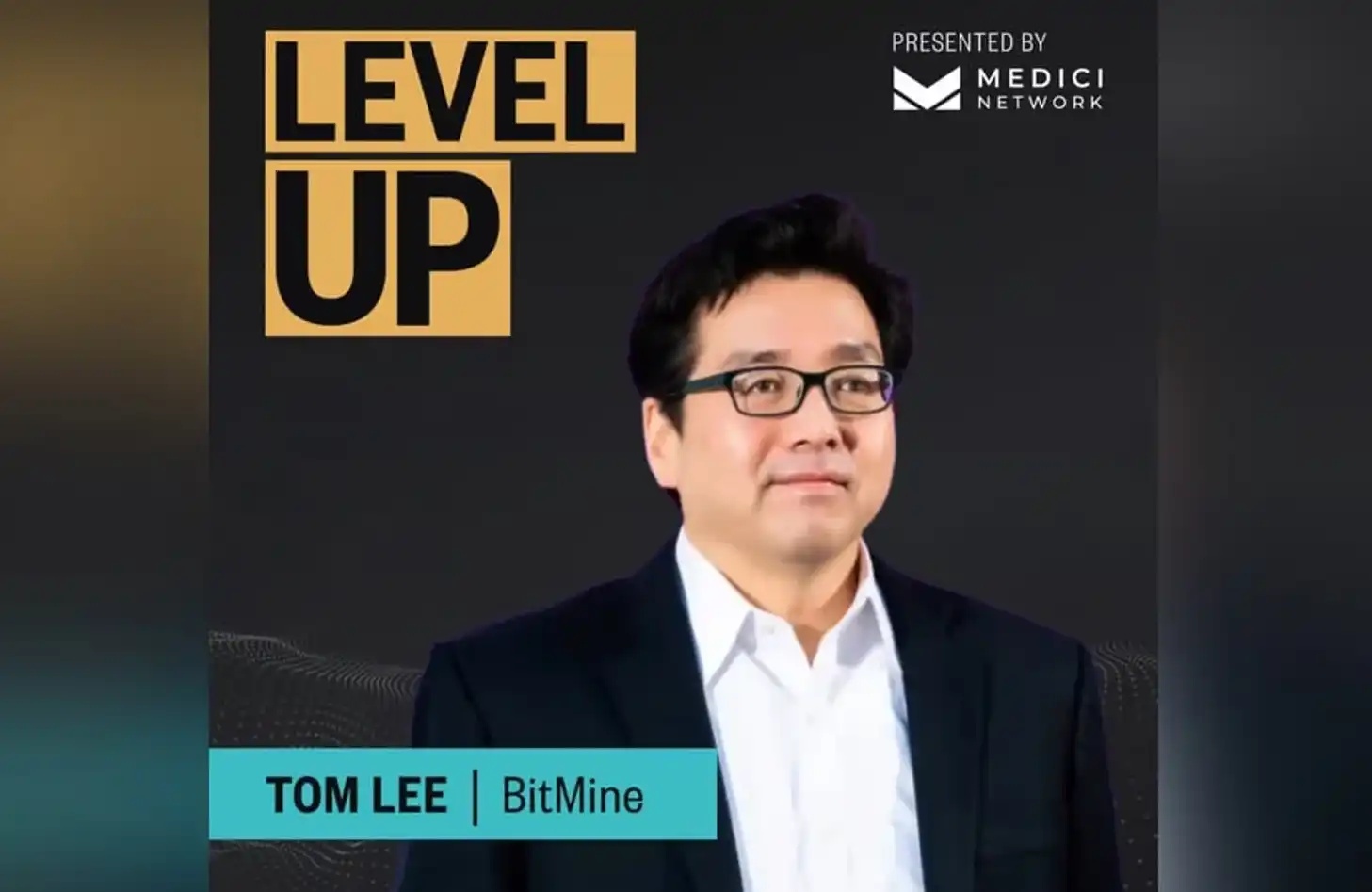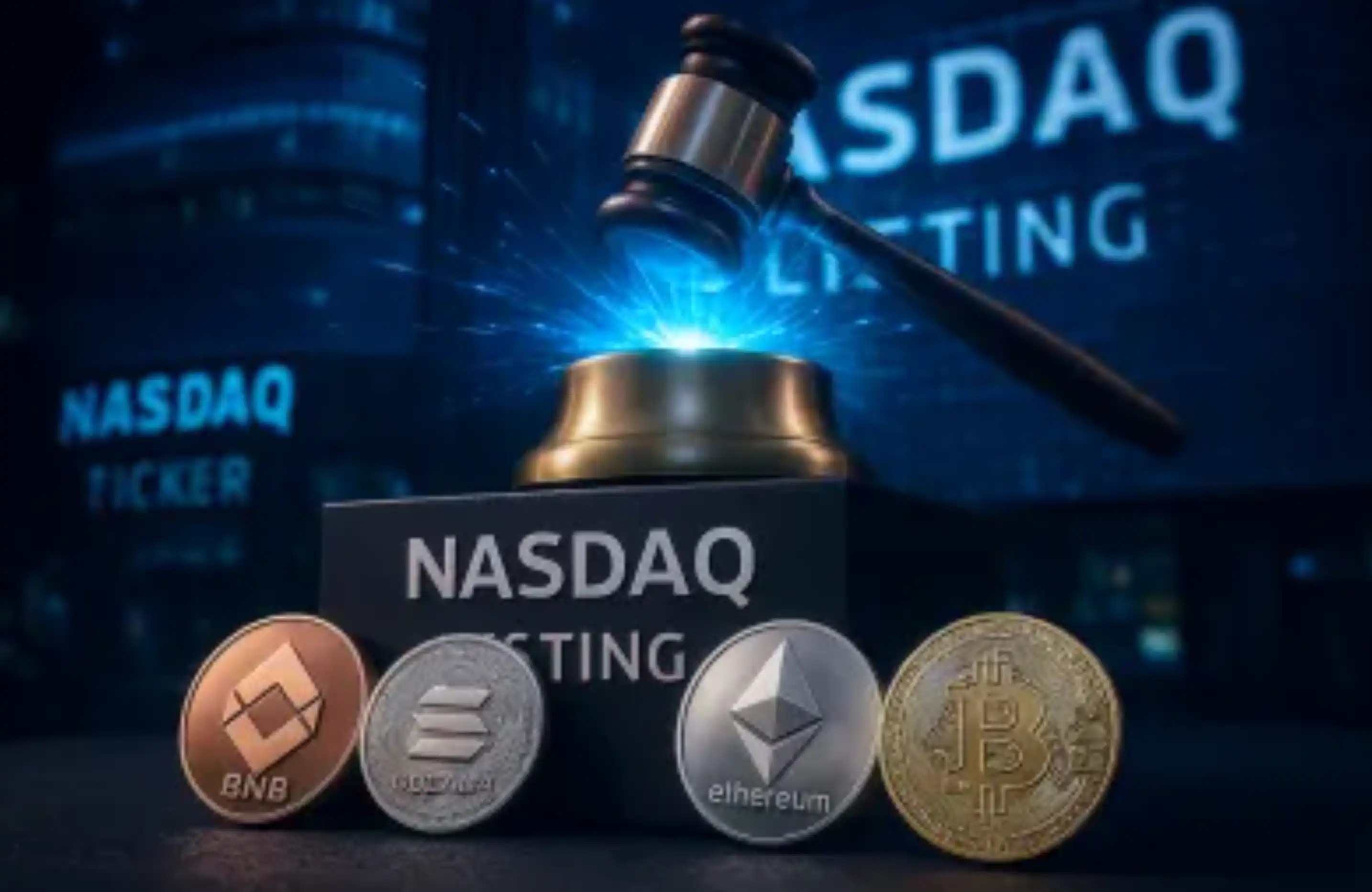Market Prediction Betting Waller, Fed Chair Replacement Enters Crucial Moment
Original Article Title: "US Stock Market & Crypto Wallet, Maybe He Will Have the Final Say in the Future"
Original Article Author: David, Deep Tide TechFlow
With 9 months remaining until Powell's term ends, the discussion about who will succeed as the Fed Chair has heated up.
The Fed Chair is arguably the most powerful economic position in the world. A single word from him can cause drastic market fluctuations, a decision can influence the flow of trillions of dollars. Your mortgage rate, stock market returns, and even the volatility of crypto assets are all closely tied to the decisions made in this position.
So who is most likely to be the next chair? The market has also gradually provided its own answer.
On August 7, on the prediction market Kalshi, Fed Board Member Christopher Waller's odds surged from 16% the previous day to over 50%, surpassing all competitors for the first time. Although the odds have fluctuated since then, Waller has consistently maintained the lead.
As of the latest data, Polymarket shows that Waller still leads with a 35% probability, higher than other popular contenders Kevin Hassett and Kevin Warsh at 17%.

Why has the market suddenly favored this 65-year-old current Fed Board Member?
A recent Bloomberg report may provide a clue: the Trump advisory team believes Waller "is willing to formulate policies based on forecasts rather than current data" and has a "deep understanding of the Federal Reserve system."
More importantly, Waller was nominated by Trump in 2020 to join the Fed. And at the FOMC meeting on July 30, Waller did something particularly noteworthy:
He, along with another Board Member Michelle Bowman, voted against, believing the Fed should cut rates by 25 basis points. This was the first time since 1993 that two Board Members dissented against maintaining the interest rate.
What Trump needs now is a Fed Chair who can both push for rate cuts and not be seen as a White House puppet by the market; from this perspective, Waller seems to fit the bill perfectly.
Political Acumen, Seizing the Right Moment to Take a Stand
To understand Waller, we have to start with this dissenting vote.
First, let's explain the background: The Federal Open Market Committee (FOMC) of the Federal Reserve holds 8 meetings a year to decide the US benchmark interest rate. This rate is the main gatekeeper of the US economy, determining the borrowing cost between banks and thus influencing all loan rates.
Attendees need to collectively vote on rate changes. For decades, these votes have almost always been passed with consensus. Within the Fed culture, a public dissenting vote is seen as a challenge to the Chairman's authority.
The FOMC meeting on July 30, 2025, was particularly sensitive.
The Fed had kept rates unchanged at 4.25%-4.5% for five consecutive times. Meanwhile, Trump, on Truth Social, day after day, attacked Powell as "too late," "stupid," demanding an immediate rate cut to stimulate the economy.
And just two weeks before this meeting, on July 17, Waller gave a speech at the New York Money Marketeers forum, with sharp words:
"I have often told my junior colleagues that speeches are not murder mysteries --- tell the audience directly who the murderer is, that's telling them the point."
The point of this speech was naturally his belief that the FOMC should cut rates by 25 basis points; and the murderer was also projected onto the Fed.
Publicly stating a view generally does not align with central bank officials' code of conduct. But perhaps this was a carefully chosen moment by Waller to engage in political gamesmanship.
By publicly expressing his views in advance, it might also make the dissenting vote at the formal FOMC meeting two weeks later appear to be based on long-term thoughtful professional judgment rather than succumbing to political pressure.
On July 30, when Waller and Bowman cast dissenting votes against keeping rates unchanged, it was indeed the first time since 1993 that two governors had dissented simultaneously, which was bound to draw attention.
The signal the market read was that there were rational differing voices within the Fed; but from Trump and his team's perspective, this seemed more like a statement and alignment by Waller.
Even more cleverly, Waller also expressed his views on the current tariff policy: "Tariffs are a one-time price-level increase and will not cause sustained inflation." This line became a hallmark argument quoted by various media outlets.
The implication of this sentence is:
Trump's tariffs will indeed raise prices, but only temporarily. Therefore, interest rates should not be lowered just because of the tariffs. Evidently, Waller's view not only did not criticize Trump's tariff policy but also provided an economic basis for interest rate cuts.
Using an economic theory to resolve a political dilemma; seizing the right moment to express the same interest rate cut position as the president.
Preemptive Treasurer, Predicting an Economic Soft Landing
If casting a dissenting vote showcased Waller's political acumen, then accurately predicting the economic trajectory demonstrated a strong level of proficiency in the field.
First, some context.
In June 2022, the US inflation rate reached 9.1%, hitting a 40-year high. What does this mean?
If you had $10,000 saved at the beginning of the year, by the end of the year, your purchasing power would only be $9,000. Gas prices doubled, and eggs went from $2 to $5.

The Federal Reserve faces a tough choice. To lower inflation, they must raise interest rates. Raising rates would make loans more expensive, deter businesses from borrowing for expansion, dissuade consumers from taking loans to buy homes or cars, and result in an economic slowdown, leading to a decrease in inflation.
However, the issue is that an overdose could be catastrophic. Historically, each significant rate hike by the Federal Reserve has triggered an economic recession.
At this point, a rare public debate erupted within the economics community.
On one side were three heavyweight economists: former Treasury Secretary during the Clinton era, Summers, former Chief Economist of the IMF Blanchard, and Harvard economist Dornbusch.
In July, they published a study positing that the Federal Reserve could not control inflation without causing a "painful" surge in the unemployment rate. To bring down inflation, the unemployment rate would inevitably rise. This is an economic law, much like a physical law.
The Summers team's calculation stated that to reduce inflation from 9% to 2%, the unemployment rate would need to rise to at least 6% or higher. This would mean that millions of people would lose their jobs.
But Waller disagreed.
On July 29, he and Federal Reserve economist Andrew Figura published the paper "How Much Does the Beveridge Curve Tell Us About the Likelihood of a Soft Landing?," directly challenging the Summers team's conclusion.

Waller's core point is that this time is different because the pandemic has caused an unprecedented distortion in the labor market.
Many people have retired early, and many are unwilling to work due to the pandemic. This has led to a disproportionately high number of job vacancies; it's not that the economy is really so hot and everywhere is hiring, but rather that the number of people willing to work has decreased.
The conclusion of the paper is that a soft landing is a "reasonable outcome," where the U.S. can bring inflation back to normal with only a slight increase in the unemployment rate.
On August 1, Summers and Blanchard quickly struck back, stating that Waller's paper contained "misleading conclusions, errors, and factual mistakes."
Central bank officials usually choose their words carefully, and scholars are also polite in their disagreements. However, this time, both sides were very forceful in their statements, seemingly each defending the correctness of their economic theories.
Of course, the market is on Summers' side. After all, he is a former Treasury Secretary, Blanchard is a former IMF Chief Economist, while Waller's position is just that of a Fed Governor.
The next 18 months became a public validation and bet.
By the end of 2022, commodity prices began to fall. In early 2023, supply chain pressures eased. The Fed did significantly raise interest rates, going from nearly 0% all the way to 5.5%.
Everyone was waiting to see if a wave of unemployment would come, but the results were surprising.
By the end of 2024, the inflation rate dropped to below 3%, and the unemployment rate was only 3.9%. There was no recession, nor were there mass layoffs.
In September 2024, Waller and Figura updated their research paper, even adding an "s" to the title --- changing from "Soft Landing" to "Soft Landings," implying that this was not incidental but replicable.
Waller won this bet.
The academic clash also proved that Waller has the ability to challenge authority and make independent judgments; for the Trump team, this was even more valuable. What they saw was someone willing to challenge the mainstream and believe in the resilience of the U.S. economy.
Midwestern Scholar Ventures to Washington
Unlike Waller and most of those serving at the Fed, he has a unique career path.
In 1959, Waller was born in Nebraska City, a small town in Nebraska with only 7,000 people. He spent his childhood in South Dakota and Minnesota, both agricultural states in the American Midwest, far from the financial centers of the East Coast.
The typical occupant of a seat on the Federal Reserve Board is usually of a certain kind: an Ivy League graduate, has worked on Wall Street, or has served in a government position in Washington. They often speak the same language and share a similar worldview.
Waller clearly does not fit into that category.
Waller's starting point was Bemidji State University, where he earned a Bachelor's degree in Economics; a place you may have never even heard of, located in the northern part of Minnesota where winter temperatures can drop to -30 degrees.
Such a upbringing may perhaps provide a clearer view of the real America, and those who live in small towns, taking out loans to buy a house and a car, worrying about jobs and prices.
In 1985, Waller obtained a Ph.D. in Economics from Washington State University, starting a long academic career.
First at Indiana University, then at the University of Kentucky, and finally at the University of Notre Dame; for a whole 24 years, he was teaching and conducting research. Waller's research focused on monetary theory, one of the most abstract branches of economics.
This kind of research obviously won't get you on TV, won't make you a celebrity economist, but it may come in handy at a critical moment. In 1996, Waller co-authored a paper titled "Central Bank Independence, Economic Behavior, and Optimal Term Length."

This paper examined a practical and timely question: How long should a central bank governor's term be?
The core finding of the paper was: If the term is too short (like 2 years), the central bank governor may succumb to political pressure because he wants to be reappointed. If the term is too long (like 14 years), he may become detached from reality and less flexible.
25 years later, this theoretical paper turned into a practical guide.
In 2020, when Trump publicly criticized the Fed and demanded a rate cut, Waller, who had just joined the Fed, faced a choice: complete compliance or complete defiance?
He chose a third path: to support rate cuts at certain times, such as voting against in July 2025; but the reasoning had to be professional, not because the president asked us to cut rates.
This delicate sense of balance, neither completely independent to ignore political reality, nor dependent to lose professional judgment, is exactly what he studied over 20 years ago.
In other words, Waller navigates the Fed not by instinct on a tightrope, but with a set of academically validated equilibrium theories.
Prior to joining the Fed, Waller also went through his share of "training" battles.
The Fed is not a single entity but is made up of the Board of Governors in Washington and 12 regional Reserve Banks. Each Reserve Bank has its own research department and policy leanings.
In 2009, the 50-year-old Waller left academia to join the St. Louis Fed as research director, a role he held for 11 years. Waller oversaw a research department of over 100 people, with responsibilities including analyzing economic data, writing policy reports, and preparing for FOMC meetings.
What truly altered his career trajectory was his nomination to the Federal Reserve Board by Trump in 2019.
The nomination itself was controversial. Waller's confirmation process was not smooth, with Democratic senators questioning his independence, given he was nominated by Trump. Republican senators, on the other hand, were concerned he was too academic and not "loyal" enough.
On December 3, 2020, the Senate narrowly approved his appointment by a vote of 48-47, one of the closest votes in recent years. Entering the top echelons of the Fed at the age of 61, Waller is older than most governors. Paradoxically, this turned into an advantage.
The path of most Fed governors is predictable: elite school → Wall Street/Government → Fed. They enter the corridors of power in their 40s, with ample time to build connections and learn the game rules.
Waller is different. He spent 24 years in academia, 11 years at a regional Fed, and only arrived in Washington at 61.
Compared to other governors, Waller carries less baggage, owes no favors to Wall Street; at the same time, having been at the St. Louis Fed, he knows the Fed is not a monolith, where dissenting voices are not only tolerated but sometimes encouraged.
When the Trump team assessed who could succeed Powell, they likely saw these traits:
An older individual who didn't need to prove anything; someone with independent judgment but who knew how to express it within the system.
Crypto Bullish?
If Waller does become the Fed chair, what benefits would it bring?
The market's initial reaction is that Waller would cut interest rates. After all, he dissented in July to support rate cuts. Trump has also been calling for lower rates.
But looking closely at his track record, the situation is more complex.
In 2019, when the economy was strong, Waller supported rate cuts. In 2022, as inflation soared, he supported aggressive rate hikes. In 2025, he shifted back to supporting rate cuts...
His principles also seem clear: loosen when needed, tighten when needed. If he becomes chair, the rate policy may be more "flexible," not necessarily mechanically following Trump's rules but adjusting quickly based on economic conditions.
But Waller's real difference may not lie in traditional monetary policy but in how he views innovation like crypto and stablecoins.
On August 20, asked about how the Fed would respond to financial innovation, Waller said, "There is absolutely no need to worry about digital asset innovation"; in February this year at a stablecoin conference in California, he stated that stablecoins are "designed to maintain a digital asset's value stable relative to the national currency."

It's important to note that he emphasizes the relationship with the national currency, not something outside the monetary system. This difference in perspective could bring about a fundamental policy shift.
Currently, the U.S.'s attitude toward digital assets is defensive, concerned about money laundering, financial stability, and investor protection; the regulatory focus is on "risk control."
Waller clearly opposes central bank digital currency, believing it is "unclear how it addresses any market failure issues in the U.S. payment system," but he supports another path: allowing private stablecoins to innovate and take on the role of a digital dollar.
But all these ideas are contingent on Waller's ability to handle pressure.
He hasn't experienced a true financial crisis test. During the 2008 Lehman collapse, he was teaching. In 2022, when FTX went bankrupt, he had just joined the Fed, not yet a key decision-maker.
From governor to chair is not just a change in position. A governor can express personal views, but every word from the chair could move markets.
When the stability of the entire financial system rests on one's shoulders, "innovation" and "exploration" may become luxuries. Whether crypto is entirely bullish remains unknown.
Welcome to join the official BlockBeats community:
Telegram Subscription Group: https://t.me/theblockbeats
Telegram Discussion Group: https://t.me/BlockBeats_App
Official Twitter Account: https://twitter.com/BlockBeatsAsia
 Forum
Forum

 Finance
Finance
 Specials
Specials
 On-chain Eco
On-chain Eco
 Entry
Entry
 Podcasts
Podcasts
 Activities
Activities
 OPRR
OPRR









